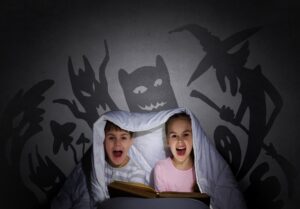Psychology of child development: what fears are considered normal in childhood?
For a child, https://argoprep.com/blog/writing-prompts-by-grade-level-k-8/ and the outside world around him is interesting, magical, exciting, but at the same time, and in many ways incomprehensible, dangerous, scary. That is why fear and anxiety in childhood are not uncommon, but if they are moderate, they contribute to the adaptation of the child. A serious problem arises when a child’s fear is too strong and not appropriate for his age. Parents often turn to specialists in child psychology with the problem of the presence of a particular fear in a child. In order to help children and parents, a child psychologist needs to know what children’s fears are the result of a natural alternation of stages of growth and maturation.
Researchers in the field of child psychology (psychology of child development, developmental psychology) argue that girls are more prone to experiencing fears and anxiety, and these experienced emotions and feelings are more intense than boys (this ratio is preserved at almost any age).
So, consider the age periodization of normal childhood fears on base https://argoprep.com/blog/project-based-learning-pbl-examples/:
from 6 months to one year: during this period, children are afraid of loud noises, strangers, separation from their mother, and also react with anxiety to the alarming state of the mother. As for the period up to 6 months, here we can talk more about anxiety reactions, and not about specific fears;
from 1 to 3 years: at this time, children continue to be afraid of separation from their parents, strangers (although this fear is already becoming less), there is a fear of punishment from parents, fear of doctors, as well as darkness, confined space, loneliness;

from 4 to 6 years: in this age period, such children’s fears as the fear of animals, physical grass, separation from parents, supernatural beings are relevant, there is a fear of death (one’s own and the death of parents);
from 7 to 11-12 years old: there are fears associated with entering and studying at school, for example, the fear of being late for school, the fear of tests and examinations, etc. The fears of death and physical injury continue to be relevant.
Later, in adolescence, fears associated with school and social interaction come to the fore (fear of doing something wrong, loneliness, etc.). The help of a child psychologist and https://argoprep.com/blog/culturally-responsive-teaching-what-you-should-know/, psychological correction of children’s fears helps to reduce their intensity and negative impact on a child’s life, improve his quality of life. Excellent methods of psycho-correction of children’s fears are offered within the framework of such art-therapeutic areas as puppet therapy, isotherapy, sand therapy, fairy tale therapy, etc.
